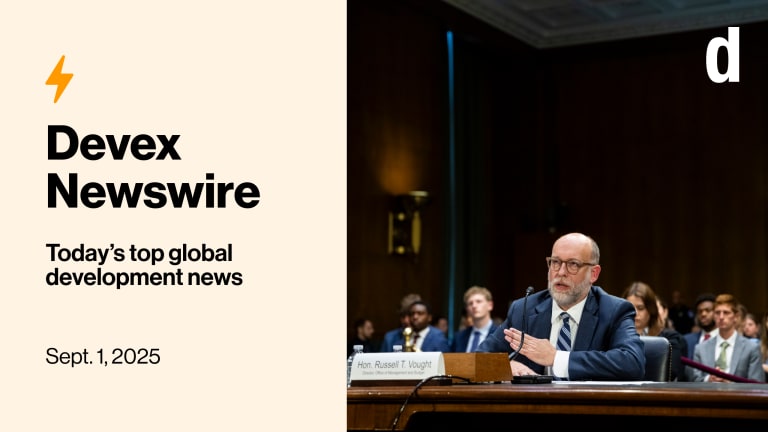
Next year, the Millennium Challenge Corp. wants to spend $676.2 million to help five countries develop their compacts. But not everyone would receive funding as planned.
Liberia, Morocco, Niger, Sierra Leone and Tanzania would all have to compete for a smaller pot of money. That budget, of course, is still pending approval by a thrifty Congress eager to reduce the U.S. deficit.
“The fiscal year 2014 funding request will not be able to fully support compacts in all five countries,” MCC CEO Daniel Yohannes said in a statement.
For fiscal 2014, President Barack Obama is requesting $898.2 million for MCC, 75 percent of which will go to supporting countries that have qualified for a compact with the government corporation. That amount can theoretically support two compacts at an average cost of $352 million, according to the agency.
So far, the organization has provided funding to countries eligible for a multiyear compact in one tranche each. But that appears to be changing now.
“The board understood that we have five countries that they felt should [be] MCC partners,” an MCC spokesperson told Devex. “They also understood that there probably wouldn’t be enough money in any one fiscal year to fund all of those.”
So countries that fail to get funding in fiscal 2014 will have to compete for future funding subject to Congress approval.
“Countries will essentially be competing for available funds by providing high-quality project proposals in the most timely way,” explained the MCC spokesperson.
Like the five countries selected for fiscal 2014 funding, Benin, El Salvador, Ghana and Georgia are also in the process of developing their compacts at an estimated cost of $960 million.
Congress, which approved about $683.7 million for compact development in fiscal 2013, has provided MCC with more flexibilities to cope with the constrained budget environment.
“One of those is we have funding that will be able to carry over from one year to next before we committed,” the spokesperson said.
Sometimes the actual amount needed for compacts is slightly lower than the approved budget, freeing some money that can be used to plug future shortfalls.
MCC recently named Benin, El Salvador and Ghana as three countries that would be hit by sequestration this year.
Said the spokesperson: ”MCC, largely because of the sequester, will have to weigh what resources are available when the compact proposal with each of these countries is finalized.”
Read more on U.S. aid reform online, and subscribe to The Development Newswire to receive top international development headlines from the world’s leading donors, news sources and opinion leaders — emailed to you FREE every business day.








